"The Bus Crashed, and We Found Ourselves Injured on a Road in Thailand"
After being injured in a bus accident in Thailand, Moshe Atiya decided to return to Israel and get closer to Judaism. Years later, he founded an organization in Kiryat Shmona, aiming to help troubled youth. 'I was once in their shoes,' he explains.
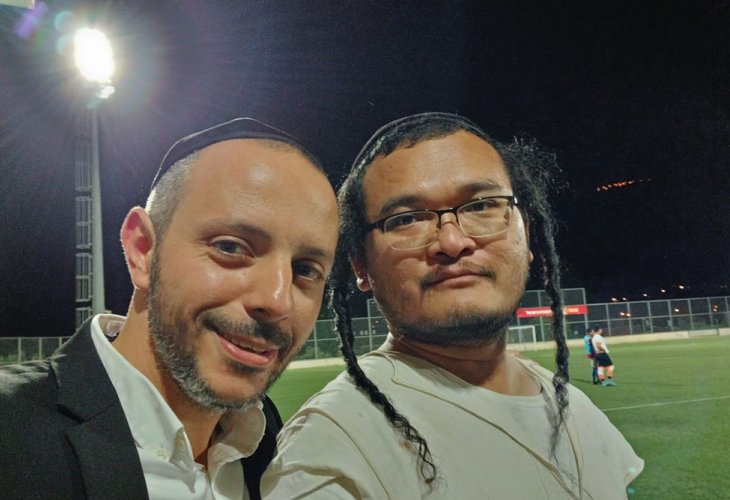 Moshe Atiya
Moshe AtiyaWhen teenagers living in Kiryat Shmona sit idly in the late hours of the night in one of the city's parks, chatting a bit and wasting time during one of the most confusing and challenging periods of their lives, someone is thinking about them and stands by them exactly in such moments.
It happens without any warning, when suddenly, out of nowhere, Rabbi Moshe Atiya, one of the city's major activists, appears in those parks. He sets up a large table with pizzas, popcorn, and treats, successfully managing to engage in lively discussions with the teens, showing interest in their well-being, and sharing their deepest secrets. He doesn't really mind that it's already past midnight; the teens are more important to him than his sleep.
He's been working in this field for ten years, and many teenagers testify that they owe him their lives and their journey on the right path. What not everyone knows is that the foundation of his activity started being formed long before, during the years when he himself was a young boy in the same situation.
Signals in Thailand
"I was born and raised in the Krayot area," Atiya shares, "Until I was 17, I wasn't religious; I wasn't even interested in religion. But then, precisely at the age of the teenagers I meet today, a friend suggested I join him for a Torah lesson. It wasn't the Torah that attracted us, but we heard they were giving out pizzas and there were snooker games. We didn't have anything better to do, so we went."
This was his first encounter with Judaism and Torah lessons. "I attended the lessons regularly, and I was very active in them," he recounts, "until I enlisted in the army and could no longer continue attending."
From that moment, his life path was like that of many other Israeli youngsters, and after completing his military service, he decided to organize a trip abroad to see the world. "At that time, I had a connection with one of the rabbis who strongly recommended that I join lessons and study a bit in a yeshiva, but it didn't appeal to me. I was looking for action, so I flew to Thailand with my future wife," he recounts.
Nothing prepared them for the adventures they were about to experience on the trip. "At the very beginning of the trip, during one of our bus rides, a severe traffic accident occurred and the bus we were on overturned. My wife and I were injured and needed treatment, and there were other Israelis injured as well."
When you're in Thailand, in an area of a third-world country with endless expanses, getting to a hospital isn't something taken for granted. "We had to limp a very long way," Atiya describes, "until we reached a place where rescue forces arrived and took us to a filthy hospital full of lizards and spider webs, where no doctor spoke English. We tried with hand gestures and pleas to find out if there was another hospital where we could get treatment. They eventually transferred us to a slightly more advanced hospital, but it was still very outdated with a real risk of infecting infections just by being there."
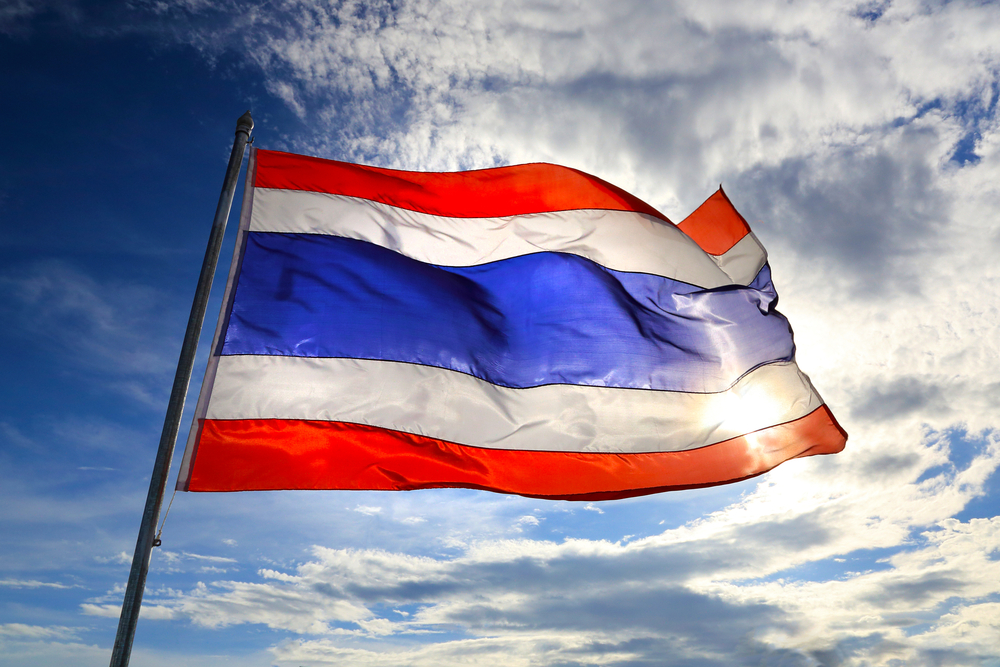 (Photo: shutterstock)
(Photo: shutterstock)At some point, the couple realized they wouldn't receive proper care unless they involved the Israeli ambassador, so they decided to do so. "When we turned to the ambassador, we found out he was already aware of the accident because he was handling other Israelis, some of whom were flown back to Israel because they were more seriously injured than us. He sent us to a hospital in Bangkok, and when we arrived, we were truly shocked. It was the complete opposite of the hospitals we had seen before. We quickly realized that it was considered one of the top ten hospitals in the world."
Nevertheless, Atiya and his wife discovered that the place was full of Muslims coming from Iran to receive treatments at this advanced hospital. "We were there for several days, avoiding speaking Hebrew and hiding all signs indicating we were Jewish Israelis. My wife underwent a minor surgery on her leg, and I was also treated. In my heart, I knew it was time to end the trip. I felt that Hashem was hinting that my place was not in Thailand, and yet it was hard for me to leave."
They decided to travel a bit more, boarded a plane to southern Thailand, and had another harrowing experience when the pilot landed unprofessionally, and only miraculously, the plane stabilized at the last moment and didn't crash. "We went through several moments where we were sure we wouldn't come out alive," Atiya describes, "and as if to add to the traumas, we rented a car at the airport, and after five minutes, another car hit us badly and disappeared.
"I felt that I didn't need any more signs, and I told my wife that we were going back home. She completely agreed with me, and when we returned to Israel, I immediately went to the yeshiva near my home and asked to join some lessons. It's not that I started studying regularly, but I felt I had to give something to my soul."
For the Sake of the Youth
From those moments, Atiya felt that something in his life had changed. "Until then, I defined myself as traditional," he explains, "I would sit with my family around the Shabbat table and hear Kiddush, but in the background, we were watching news channels, and after dinner, we usually went out to have fun. When I tried to think about what Hashem wanted from me and why He saved and protected me, I knew I wanted to live my life differently, and indeed, shortly after I married my wife, we both returned to our religious roots."
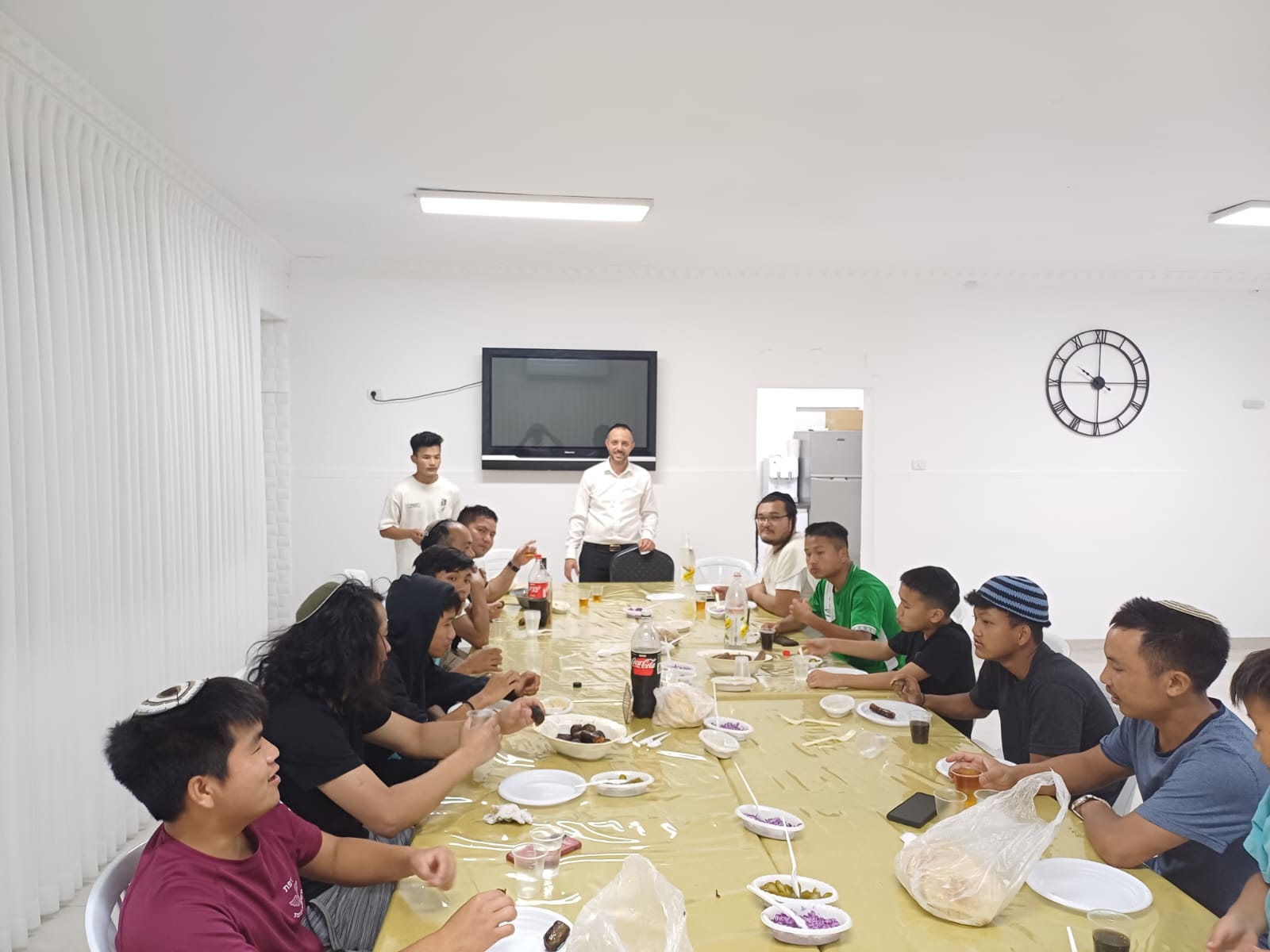
Afterward, he started working in the prison service and occasionally gave Torah lessons near his home in the afternoons. "The work in the prison service was very rewarding, but it challenged me religiously, especially with the shifts I was required to do on Shabbat. One day, someone managing an outreach organization in Kiryat Shmona approached me. He invited me to join him, but I hesitated because I needed to provide for my family, not just volunteer.
"But on one of the toughest nights at work in the prison service, I felt I couldn't do it anymore and decided to consult Rabbi David Abuhatzeira. Rabbi David blessed me and encouraged me to leave and join the organization. So I did, with complete faith that if that's what the righteous man advises, then nothing bad will come of it."
From that moment, Atiya's activity has not stopped, and over time he founded his own organization which established a Bais Yaakov school and Talmud Torah in the city, a charity for new mothers, a food bank, and assistance to the needy. Of course, the organization primarily focuses non-stop on bringing Jewish teenagers from various backgrounds closer to their religion.
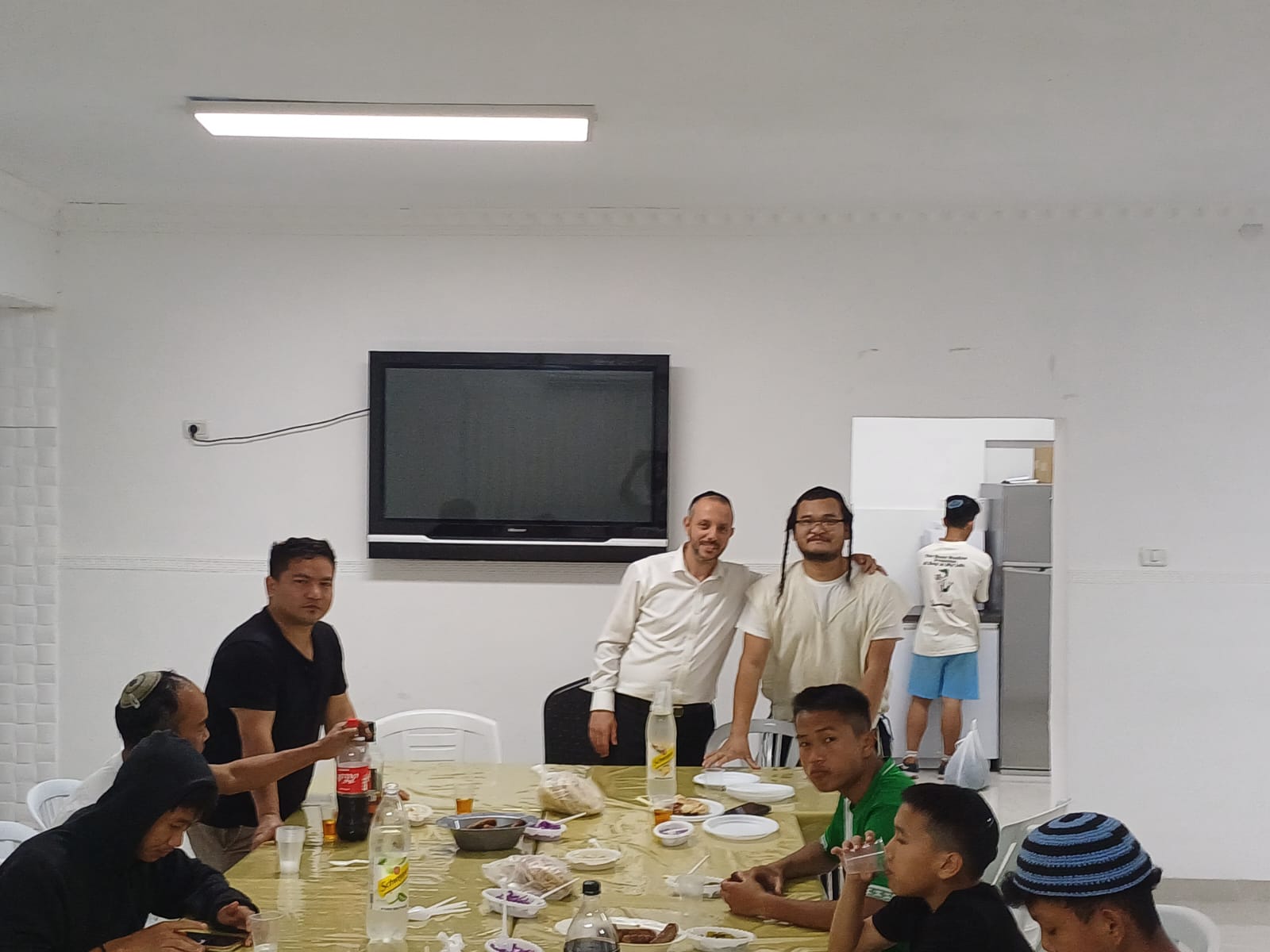
What's your secret? How do you succeed where others often face disappointment?
"First of all, I don't always succeed. I often encounter tough challenges with boys who are very difficult to reach, but I believe that precisely because we're dealing with teens who have truly reached the edge and have nothing left to lose, they open their hearts and listen to us. Some of them I know through police services, and there are times the regional police update me on the teens' situations. They consult me and even trust me when I tell them I am responsible for them."
"Over time, I discovered that teens often find themselves in these situations because they lack attention, love, and sometimes family warmth. When you give them these things, embrace them, advise them, and even lend them money if they need it, they just open up."
"That was the case with one of the boys I mentored. I noticed he was coming to our lessons for a whole month wearing the same shirt, and his shoes were torn. I delicately asked him why he looked like this, and he told me his parents were facing financial difficulties. That same day I visited their home, sat with the parents, talked to them, and saw the situation up close. I took the family's situation as a personal project. With the help of Hashem, I managed to arrange work for the father, reached out to business owners and asked them to donate food and shoes, arranged a haircut for the boy, and helped in every way I could. This child grew up, and today he continues to attend lessons, but he looks different."
"By the way, not all the cases I handle are linked to economic problems. There are also boys who come from affluent families but have other issues, and they need support in other areas. In the first stage, I always try to understand what attracts the boy and what he needs. Often, I also bring some of the teens with me when I visit Rabbi David, ask for his blessings, and they ask and consult with him."
Atiya also pays special attention to a group of Bnei Menashe tribe members who live in the city and sometimes feel a bit alienated. "I've taken them under my wing, and I'm doing everything I can to support them," he explains.
And how do you find all these teens?
"Some reach out to me, and some I approach. Since I'm a known figure in Kiryat Shmona and familiar with all the school principals, they also allow me to go from class to class, and occasionally, I hold a 'Day of Exposure' where I visit institutions, tell students about our activities, and invite them to join and participate."
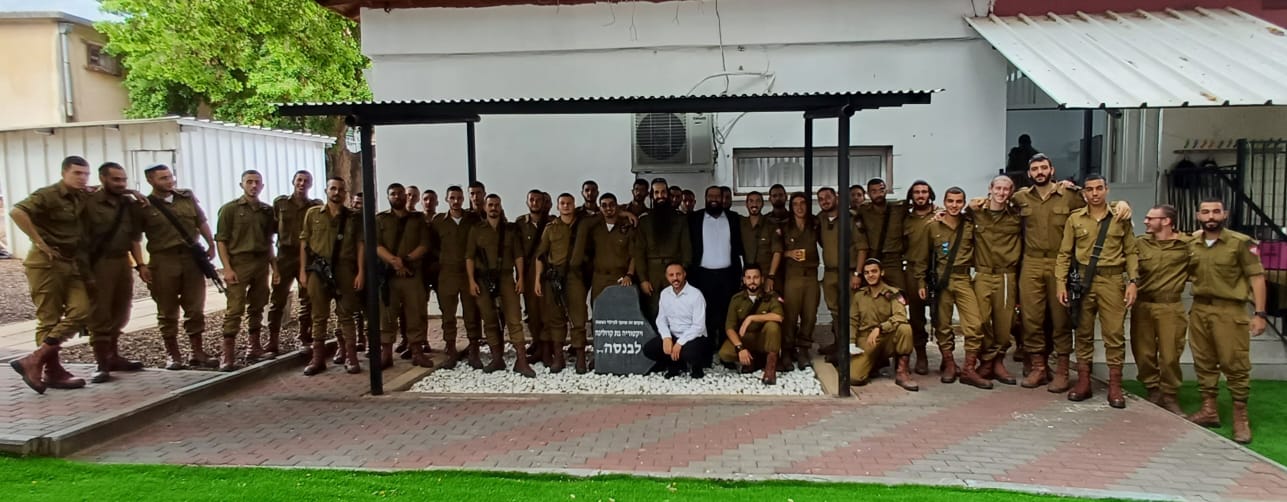
Can you tell us what you're planning for the coming summer?
"The summer break is a time that greatly threatens us on one hand because it leads to a lot of idleness among the youth but on the other hand, it gives us opportunities to meet them at less conventional times, sit with them, spoil them a bit, and hold Torah classes. We have many plans, and I hope with the help of Hashem, we will succeed in carrying them all out."

